2022




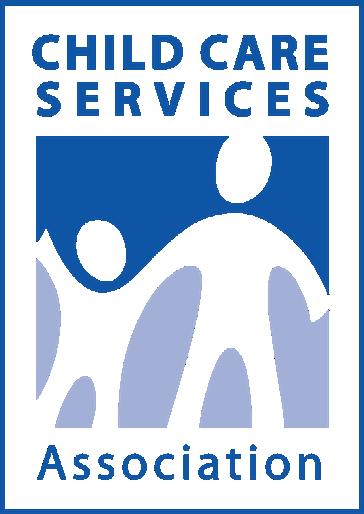
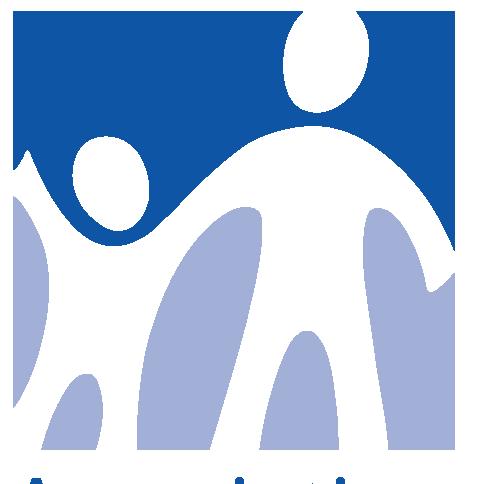

Dear Friends,
I am always amazed at the work Child Care Services Association does. As chair of the organization’s Board of Directors, I have the lucky position of seeing the good work this organization does for children, families and early childhood educators, and I am inspired and encouraged by it.
CCSA believes in a bright future, one that is realized when all children have access to and can afford the high-quality child care that means so much. A good start in high-quality child care means everything for children, especially those that come from families earning low incomes or from vulnerable families. CCSA believes that kind of care and education should be available to all children, and we’re working toward that.
In this annual report you will see the tremendous work this organization continues to do, day after day, to ensure that children receive highquality child care, families receive the support they need and early childhood educators are compensated and recognized in a way that equals their importance to our communities.
In 2022, CCSA President Marsha Basloe announced her retirement; on behalf of CCSA’s Board of Directors, we are so grateful for Marsha’s passionate leadership as she retires. Her dedication to early childhood education is one that I hope we can all emulate.
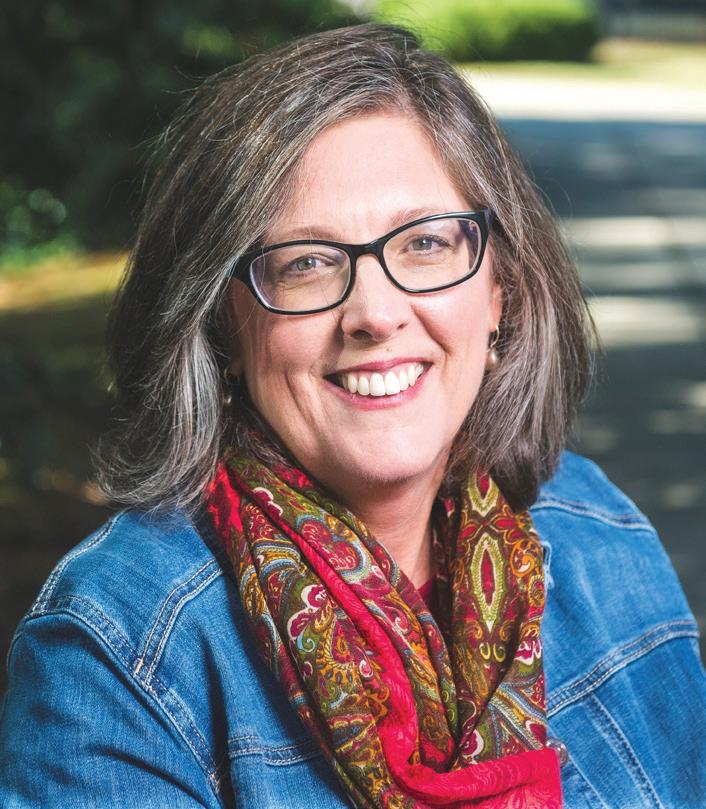
As Marsha completes her tenure, we are excited about the new leadership Dr. Kristi Snuggs will bring to CCSA. We know she will build on a strong foundation built by our previous leaders—Sue Russell, Anna Carter and Marsha Basloe. Her state and national experience, commitment to building a strong early childhood workforce, and optimism for the future of early childhood education in the Triangle, across North Carolina and nationwide give us great confidence in the future success of CCSA.
Finally, thank you so much for your continued partnership with and support of CCSA. It means everything to us and the children, families and early childhood educators with which we work.
Thank you!
Sharon Hirsch, CCSA Board Chair A Deep Impact on Children and Families: Early Childhood Education is the Workforce Behind our WorkforceOn October 31, 2022, I retired from my position as president of Child Care Services Association. Working at CCSA has been a privilege. It is a special place to work, because of its dedicated and talented staff and because of its strong support from a legion of friends and donors, policymakers, fellow advocates, early childhood educators and, most importantly, families whose young children have been taught or touched by high-quality child care programs.
I offer my heartfelt thanks to our community, board of directors and donors. You make a difference in the lives of many, the ones who trust and value the work we do, the children and families who inspire our efforts, and our board members who volunteer their time and expertise to better our cause.

I know Dr. Kristi Snuggs, CCSA’s new president, and the Board of Directors will continue the work we started at CCSA and oversee even more innovation in the ways the organization supports early childhood education. CCSA has made, and will continue to make, positive change in our communities, state and country, and I am honored to have been a part of it.
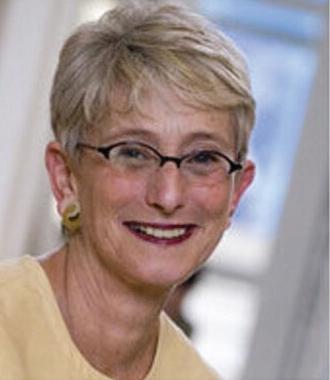
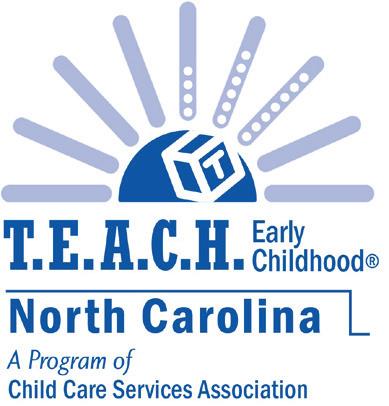

CaSandra Pittman, a child care provider and T.E.A.C.H. participant, credits T.E.A.C.H. for enabling her to return to school to pursue her passion.
CaSandra has always known that she wanted to pursue education and started her career as a third-grade teacher. After a few years in elementary education, she moved to early childhood education at a child care center and has been in the field ever since.
CaSandra has been involved with Child Care Services Association (CCSA) for much of her child care career. She was on WAGE$, then went back to school with the help of T.E.A.C.H. When talking about CCSA, CaSandra became emotional, saying that she is “very grateful for the T.E.A.C.H. scholarship program. I don’t see how I could have gotten my master’s degree without it.” Her Master’s Degree in Early Childhood Program Leadership and Administration has opened doors for her that would not have been possible without her degree.
The T.E.A.C.H. Early Childhood Scholarship Program North Carolina (T.E.A.C.H.) offers early childhood professionals a debt-free education, providing significant financial support and a counselor to help them navigate through the barriers they might face in their personal life, career or at school. Often first-generation students, T.E.A.C.H. participants are nearly all women, and more than half are Black or women of color. T.E.A.C.H. supports participants as they work while furthering their education, with the ultimate goal of increasing their marketability in the field and raising the quality of care and education they provide for the children in their program.
Since the pandemic, CaSandra says that child care has changed drastically. Her facility has had difficulty finding teachers, as they have left for less stressful and demanding fields, and enrollment decreased during the pandemic because parents often did not feel comfortable sending their children back to their classrooms. Families with children in child care also struggled, as positive cases forced classrooms to close, which interrupted their child’s education.
When asked what she liked about child care, CaSandra had many answers. She loves “seeing the children grasp new concepts” and says that children “just love teachers so much.” CaSandra also enjoys helping other teachers see that they have the opportunity to “mold and shape” their students and their experiences. Finally, she says that she loves working with teachers to help them see that they are changing the lives of their students. CaSandra says that if you treat children well, “they will remember you for the rest of their lives.”
1,955 people from 92 of North Carolina’s 100 counties participated in T.E.A.C.H. NC, which offers a debt-free education to early childhood professionals.
Those early childhood professionals worked in 882 licensed child care facilities.
57,605 children were enrolled in a child care program with at least one T.E.A.C.H. participant.
T.E.A.C.H. NC participants attended 52 community colleges and 20 four-year colleges/ universities in North Carolina.
T.E.A.C.H. participants earning an associate degree saw an increase of 13.7% in their earnings, while participants earning a bachelor’s degree saw an increase of 10.2% in their earnings.

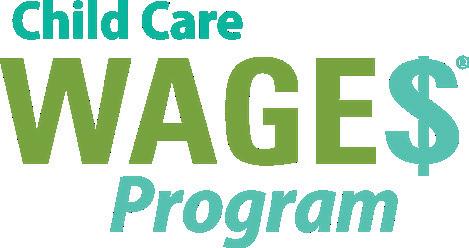
Quawona Mangle is a WAGE$ participant and child care provider who has always wanted to teach. Growing up, she benefited from good teachers and decided that she “wanted to offer the same quality of services that she experienced.” Quawona said she wanted to share her knowledge and make things easier for students and families.
Quawona is currently a senior at Western Carolina University and credits her ability to get an education to WAGE$. Having access to salary benefits made a huge difference, as she was a single parent at the time. Thanks to the salary supplements she receives from WAGE$, Quawona said she could help pay for her classes, “didn’t have to worry about student loans” and was able to save money while raising her family and going to school.
Since the start of the pandemic, Quawona said her students have had to adapt to many new practices.
Child Care WAGE$ (WAGE$) provides education-based salary supplements to low-paid teachers, directors and family child care providers working with children between the ages of birth to 5. The program is designed to provide young children more stable relationships with bettereducated teachers by rewarding teacher education and continuity of care. In FY2021-2022, WAGE$ was funded through a partnership between Smart Start partnerships and the N.C. Division of Child Development and Early Education.
The average six-month supplement was $1,203.
4,018 early childhood educators received a supplement through WAGE$.
Those professionals worked at 1698 child care programs in 61 counties across NC.

New habits like consistent temperature checks, social distancing, wearing masks and thorough hand washing have been difficult but necessary. Social distancing is a particularly difficult concept for children to grasp because children tend to like being up close and personal, hugging and sharing toys. Quawona said they have also had to change the way that mealtimes are structured. Before the pandemic, children used to pass plates, helping to develop their fine motor skills. Now, the teachers choose a helper each day to help pass food out so that children can still get this experience.
In her free time, Quawona loves to travel, hike and cook. Her passion for teaching is obvious, and she lit up when talking about food as well. She loves cooking, saying that you “just can’t go wrong” when it comes to soul food. She will graduate from Western Carolina in December 2022.
87% in those counties with at least two years of experience on WAGE$ had an Associate Degree in Early Childhood Education, its equivalent or higher or submitted coursework during the year to show their progress.
74,720 children attended child care programs with WAGE$ participants.
The turnover rate for WAGE$ participants was 14%.
In a survey, 97% said receiving WAGE$ made them feel more appreciated and recognized for their work, and 96% said WAGE$ encourages them to stay with their current child care program.
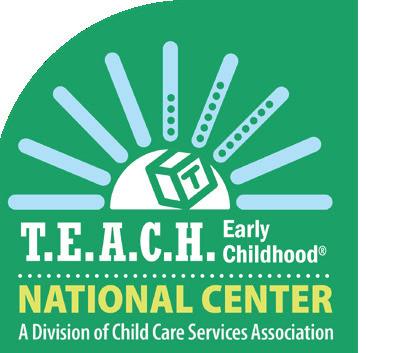
Sydia Winstead owns and operates a home-based child care program in South Philadelphia. A mother of five children and two grandchildren, her education journey has been long, but she never gave up on her dream to earn a college degree. Before opening her own program 13 years ago, Sydia worked at a YMCA Early Head Start center. She began working toward an associate degree through a T.E.A.C.H. scholarship at the YMCA but was not able to complete her degree while raising a young family.

When Sydia opened her child care business in 2009, she didn’t realize that she could receive T.E.A.C.H. as a home-based provider. “When I first looked into it, the funding had stopped and I was so disappointed. When T.E.A.C.H. started back up again I said, ‘This is my opportunity to finish school and to motivate my children because I had three of them in college at the time. I told myself, ‘I’m not going to let it pass me by this time!’”
Sydia started in T.E.A.C.H. in January 2020 and plans to complete an Associate Degree in Early Childhood Education in 2023. As she completed college credits, she increased her program’s STAR rating to a 4 and received an Early Head Start grant in November 2021.
The T.E.A.C.H. Early Childhood National Center at CCSA (National Center) helps improve the education, compensation, career progression and retention of the early childhood workforce. Central to this work is the replication of the T.E.A.C.H. Early Childhood Scholarship and Child Care WAGE$ programs across the country through statewide non-profit organizations. In FY2021-2022, 22 states and D.C. operated T.E.A.C.H. programs, and five states operated WAGE$. The National Center helps these organizations ensure that early childhood educators earn more, continue their education and stay in the field, with the end goal of building a pipeline of educators for future generations.
Balancing classes, homework, running a homebased center and caring for her family has not been easy, but Sydia credits her T.E.A.C.H. counselor for helping her stay on track. “Jen was very helpful and encouraging whenever I called or reached out. I love that she would always send an email checking to see how things are going or if I need help with anything. She would say, ‘Don’t be afraid or ashamed to ask for tutoring if you need it.’ She helped me pace myself with the number of classes I took so I wouldn’t get overwhelmed.”
As Sydia realizes her dream, she is inspiring her children to pursue theirs. “My 19-year-old daughter is going into her junior year at Lincoln University and she gets so discouraged. She was not doing too [well] in chemistry, so I told her to go to tutoring. I said, ‘Don’t give up, you can do it. I’m doing it!’ My oldest daughter, who completed three years at Howard University, is now going back to school to finish her last year.”
“I tell all my children, even my 9-year-old son, ‘It’s never too late to go back to school.’ T.E.A.C.H. helped me to know that anything is possible if you put your mind to it.”
“Without the T.E.A.C.H. scholarship, I would not have been able to afford to get a BA degree. The financial support was essential to managing college as an adult while parenting and working fulltime. Earning my degree gives credibility to the work that I do every day. I may be doing the same work but I would like to believe that I do it with more knowledge and more intention. Many early childhood educators enter the field without a degree. T.E.A.C.H. scholarships offer opportunity to people who are doing the important work of caring for and educating the young children of our country.”
– Theresa Peplinski, Minnesota, T.E.A.C.H. Graduate, Family Child Care Provider A Deep Impact on Children and Families: Early Childhood Education is the Workforce Behind our WorkforceNationally, in FY2021-2022, states invested $47.3 million in scholarship recipients in 22 states and D.C.
In FY2021-2022, there were 15,318 T.E.A.C.H. participants in 22 states and D.C.
548,163 children benefited from having a better-educated teacher.
CCSA’s Research Division conducts comprehensive studies, created and maintains the North Carolina Early Care and Education Data Repository and provides data resources to improve child care, recognizing that information is the first step to improving an early care and education (ECE) system. Since the 1990s, CCSA has researched and reported on topics such as teacher turnover, supply and demand, subsidy, careers in early childhood, child care fees, after school care, child care system issues and more. These studies give policymakers in our state and local governments, and stakeholders in our communities the information they need to strengthen early childhood education.
In FY2021-2022, 9,488 people participated in WAGE$ programs across the U.S.
11-12% was the average wage increase of T.E.A.C.H. participants.
45% of T.E.A.C.H. associate degree scholarship recipients were people of color; 47% of T.E.A.C.H. Bachelor’s degree scholarship recipients were people of color.

In FY2021-2022, Dogwood Health Trust contracted with CCSA to conduct a study of early childhood education in 18 counties in western North Carolina. This report presents an overview of the early childhood education landscape across the geographical area served by Dogwood as of February 2022 and provides insights on changes due to the pandemic by comparing 2022 data with data from 2020 and 2019.
The turnover rate for WAGE$ participants was 13%.
99% of WAGE$ participants nationally were women.
3,919 child care programs across the US had supplement recipients.

Also in FY2021-2022, CCSA’s Research Division conducted a statewide and countylevel study to assess the supply of infanttoddler care in North Carolina and the impact of COVID-19 on the infant-toddler child care landscape, under contract with the Think Babies™ NC Alliance. That report combines surveys and focus groups to paint a picture of how our child care system changed from pre-pandemic through 2020 and 2021 to today. The bottom line: infant-toddler child care is hard to find, hard to afford and hard to provide, creating huge challenges for babies, families, early educators and communities.
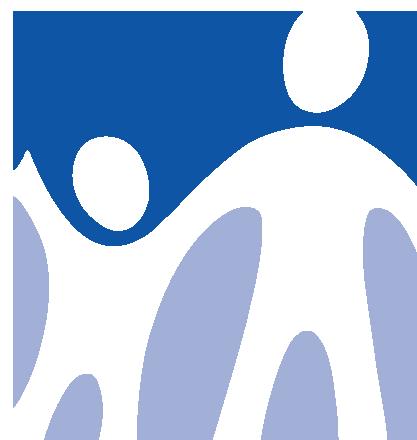

Union County toddler teacher LaTonya Pegues got her Associate Degree in Early Childhood Education in her 40s, and she is proud that she went back to school and stuck with it. She said, “It was hard, but I did it! I have a son and two grandchildren. I’m a teacher all the time: at home, at church, in my community and in my center. I’m striving to do better every day and be a better person.”
Children were always her passion, but she was not able to pursue the early childhood field initially. She was a Certified Nursing Assistant for 25 years and when her son was grown, she decided it was time to go back to school, to do what she loved. Despite her drive to get an early childhood degree, it was not easy. “I really struggled with time management, being a wife, a mother, working and going back to school. Life happens and you have to keep pushing to reach your dreams. It was all worth it in the end,” LaTonya said.
“My education has really helped me in my career because I know what the developmental goals are and I can see the growth in the children. I have more confidence. I have honed my craft and I know what I’m doing in the classroom.”

Infant-Toddler Educator AWARD$® has helped her obtain her degree and remain in the field she loves. She said, “AWARD$ has been a blessing. It is rewarding because it supplements income that we are not getting
Infant-Toddler Educator AWARD$ provides education-based salary supplements to low-paid early educators working full-time with children birth through age 2 in North Carolina. Historically, there has been a significant difference in the quality of care that infants and toddlers receive when compared to that of 3-5 year olds. Since a child’s brain develops more in their first five years than at any other time in life, it is critical that infants and toddlers are cared for by supportive, stable educators. AWARD$ helps accomplish that by encouraging participants to get a degree and stay in early childhood education at their current program.
because a center can’t afford to pay you what you are worth. It gives hope to educators who work for centers that do not have much funding. These centers still need teachers to provide quality care to infants, toddlers, and twos. It’s important to start learning early and AWARD$ gives stability to teachers by giving an incentive. This incentive helps teachers to stay at centers that are understaffed and underpaid. I don’t do this job for the money, but because it gives me joy to create bonds and to hear my two year olds say their numbers in Spanish, which is something I taught them. Children are like a blank canvas and as we pour into them, they become a masterpiece full of color and knowledge.”
The supplements have also helped her financially. “AWARD$ has helped me out of some situations that I really needed help getting out of. Due to COVID, my husband was laid off and we missed his income and things got rough. I prayed and paid what I could. Just when I thought I was going to lose my car, my AWARD$ payment came. It saved my life,” LaTonya said. And she wants to make sure the Division of Child Development and Early Education knows how much she appreciates their funding for this program. She shared, “I am very, very grateful for the program. You don’t know how much it impacts our lives. We are real people with real issues. AWARD$ helps us stay and keep doing what we love doing. I could go to Walmart and make $22 per hour, but I am here for the children. Early learning is very important.”
More than 19,261 children attended a child care program with at least one AWARD$ participant.
The turnover rate for AWARD$ recipients was 16%, showing how adequate compensation, recognition and support help reduce turnover in North Carolina’s child care programs.
A Deep Impact on Children and Families: Early Childhood Education is the Workforce Behind our Workforce

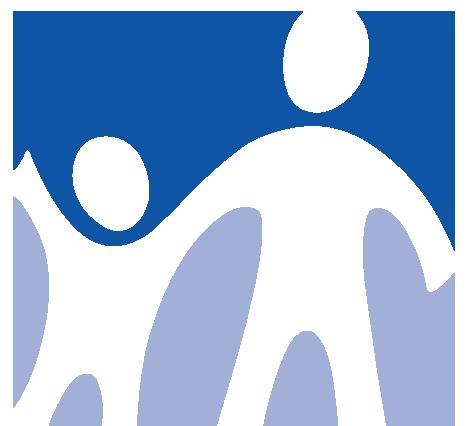
“Using the referral saved me so much time and effort. It’s incredibly difficult to find high-quality child care and I’m very thankful that this referral service worked so well.”
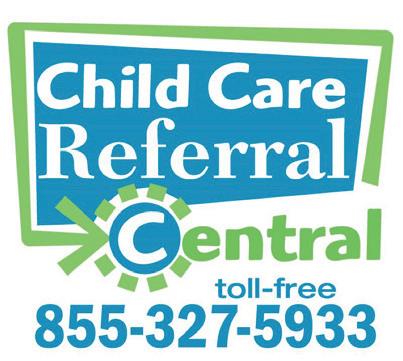
In North Carolina’s Triangle region, CCSA’s Child Care Referral Central (CCRC) is a collaboration between CCSA and the Alamance, Caswell, Person and Franklin-Granville-Vance Partnerships for Children, dedicated to helping families find affordable, high-quality child care. CCRC has bilingual child care referral

Specialists are available to help take the guesswork out of choosing care by informing families of the types of child care in their community, the features of quality child care, and referrals to child care programs that can meet the family’s needs.
“Services were very good, I found a care center that speaks Spanish. The services included lots of information and lists to help me choose.”
“As a single mom, they made me comfortable and were very respectful. We found the best child care close to my job and that works with my child care subsidy. It was an awesome experience and we are very thankful they helped make it easier for us.”
CCSA is one of three lead agencies in the N.C. Child Care Resource and Referral Council, along with Southwestern Child Development Commission in the western part of the state and Child Care Resources Inc. in Charlotte, N.C. Together, the Council manages child care consumer education and referral, professional development, technical assistance, data collection and analysis and public awareness activities across N.C. through a contract with the Division of Child Development and Early Education.

In FY2021-2022, the N.C. CCR&R Council launched its new website at www.childcarerrnc.org. This site is a resource to provide child care guidance for families, support for child care professionals and solutions for businesses, policymakers and communities across North Carolina. North Carolina’s CCR&R system is a national model for high performance, achieved by maintaining strong standards and accountability for outputs and outcomes and evaluated each year through an annual review. CCR&R programs have provided essential services in North Carolina for more than 40 years.
2021-2022...
821 referrals were provided for families whose income was less than $30,000/year.
Child Care Referral Central provided 2,381 referrals in FY2021-2022, helping families find high-quality child care for more than 3,140 children. An additional 593 families received consumer education services.
931 families receiving referrals were Black, 375 were Latinx and 438 were White.
A Deep Impact on Children and Families: Early Childhood Education is the Workforce Behind our Workforce

“As a single parent, I am not able to provide my child with everything at times. She does not get to be involved in extracurricular or recreational things, because I cannot afford it. But getting the scholarship has allowed me to keep her in a child care facility that provides extra things that she can be involved in.”
The CCSA Child Care Scholarship Program helps families find and fund child care. Quality child care is expensive, making it frequently unaffordable, especially for low and moderate income families. Developed in response to the lack of equitable access to quality care caused by the high costs, the program administers funds from CCSA’s Ramsey Tremalgia Endowment, Durham’s Partnership for Children, United Way of the Triangle, and the University of North Carolina at Chapel Hill. Scholarships provide financial assistance to families in which the parents are working, looking for work and/or in school or training and need care for children ages birth to 12 years old. The primary goal of these scholarships is to provide children with access to the high-quality child care that is so important for their early development.
“The scholarship has helped me tremendously! I am forever grateful for this blessing. As a newly divorced single mom of two, having extra funds to go towards things like groceries, basic necessities and more has helped me tremendously. Thank you to the funders!”
“It helped us immensely. Frankly, I probably would’ve been too overwhelmed and would’ve dropped out of school if I didn’t have the scholarship. With the current inflation, rent increases, and gas prices this scholarship is a lifesaver.”
“For my family, this scholarship was life-changing. We are international graduate students, trying to finish our Ph.D. dissertations while being teaching fellows at the same time. We do not have any relatives nearby. Before having this scholarship, we really had to juggle between taking care of our son and our work. It was hard and sometimes it felt that we were failing at both. With the scholarship, we have been able to work, write and teach, and also dedicate weekends and some other afternoons fully to our son without any pressure. It was also very helpful because my son now has a community made of his teachers and classmates. This is important since we don’t know many people around and thanks to the scholarship our son has been able to go to [child care] and grow in his social skills. We could not be more grateful.”
42% of families whose children received scholarships earned less than $25,000/year.
54.6% of children receiving scholarships were Black, 27% were multi-racial and 5% were Hispanic/Latino.
99.7% of children receiving scholarships attended 4- or 5-star child care programs.
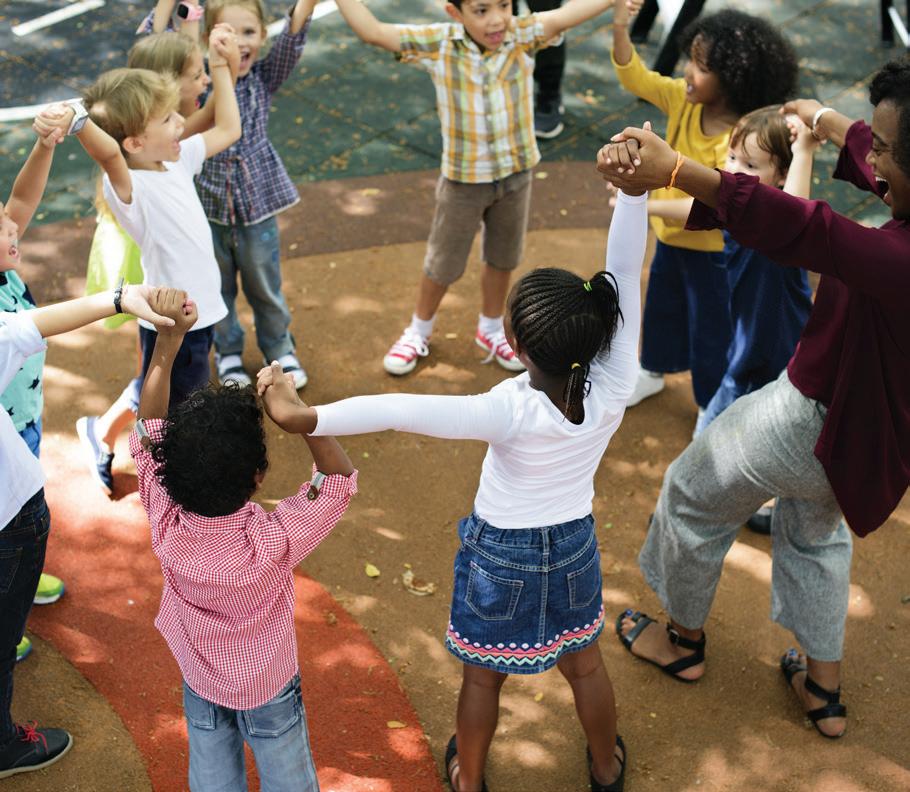

“The A.S.K. Conference was amazing. I would say that I like everything that we talked [about], touched [on], discussed and participated in this conference. We heard from each other’s experiences and we learned so much from sharing as a whole group and small group discussion. I am thankful for this conference.”
The quality of early care and education children receive dramatically affects a child’s social, emotional, physical and intellectual development, and ultimately their success well into adulthood. To ensure that all children have qualified, educated and trained educators, CCSA provides technical assistance (TA) to child care centers and family child care homes as they work to improve program practices and standards in an effort improve and create high quality early learning environments. CCSA also hosts the ASK (Advancing Skills and Knowledge) Conference, a day of professional development for early childhood educators. The 2022 ASK Conference was held virtually.
“The conference was very informative. I enjoyed the fact that we all had the opportunity to chime into the conference sessions and to glean information from each other’s experiences and expertise.”
“Very informative and enjoyed the fellowship with other teachers and administrators. I like the opportunity I had to engage with peers from other sites and the opportunity to go into breakout rooms and work in small groups.”
676 teachers and directors received on-site technical assistance.
Conference.
3,660 children were taught by teachers or directors that received technical assistance.
528 teachers and directors that received technical assistance reported improvement in their learning environments.
6 child care programs received technical assistance to support work toward national accreditation by the National Association for the Education of Young Children (NAEYC).
Ensuring the early learning and development of our country’s youngest children is essential to CCSA’s work. Supporting the well-being of these young children and their families is an urgent task and one that is critical to improving the long-term educational outcomes of children nationwide.
Access to high-quality child care is a key work support for parents. It also helps support healthy child development, which is important for all children, but of critical importance to young children in families experiencing homelessness.
Research has established a strong connection between a young child’s early experiences and the development of his or her brain structure. We know that homelessness jeopardizes the health, early childhood
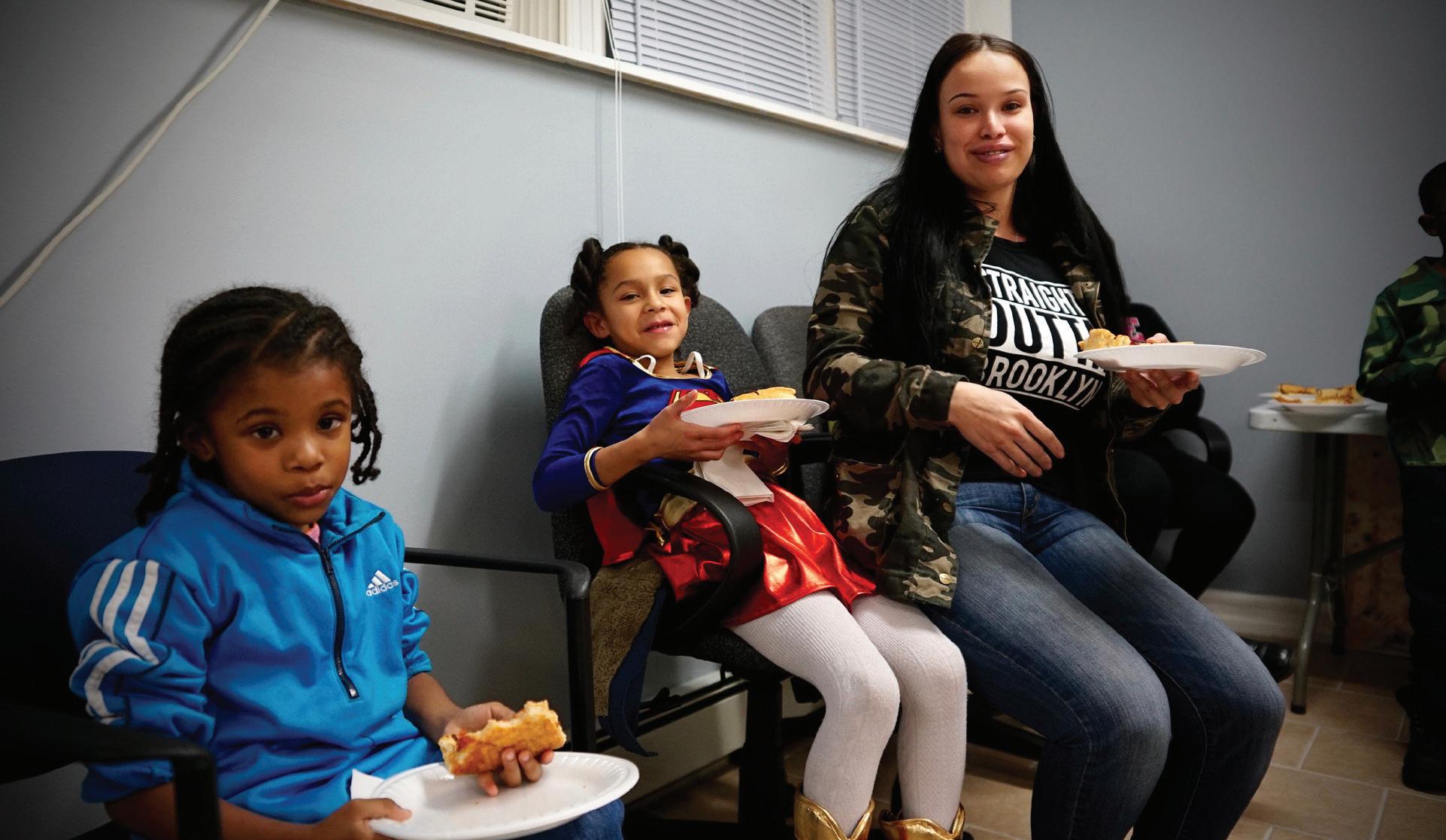
development, and educational well-being of infants, toddlers, and preschool-aged children. It also creates unique barriers to participating in early care and education.
With nearly 50% of children living in federally-funded homeless shelters under the age of 5, this is a problem for families, communities, states and the country. And, there are concerns today, that the COVID-19 health pandemic will increase family homelessness even more.
In FY2021-2022, Child Care Services Association reviewed the FY2022-2024 Child Care and Development Fund (CCDF) State Plans to see policies and strategies across states to better support the needs of families with young children experiencing homelessness.



The NC Infant-Toddler Quality Enhancement Project (NCITQEP) helps improve the quality of early care and education our state’s youngest and most vulnerable children receive by providing hands-on individualized and tailored technical assistance to child care providers and administrators. In FY20212022, NCITQEP completed another successful year of providing technical assistance and training for our infant and toddler workforce with a team of 21 regional specialists and a management team of four. Recruiting and working intensively with classroom teachers remained difficult due to outbreaks and isolation due to the ongoing COVID-19 pandemic. The team planned and provided many opportunities for virtual as well as face-to-face TA but teachers reported stress and long working hours as deterrents to participating.
Technical assistance participants indicated their appreciation and growth achieved via a survey completed in June and July 2022. More than 100 surveys were received and 100% said they increased their ability to apply the knowledge and skills gained through technical assistance and all said they would recommend the project to others.
NC
A Deep Impact on Children and Families: Early Childhood Education is the Workforce Behind our Workforce“Our infant toddler teachers have a better understanding of scaffolding. Our infant-toddler teachers have changed their teaching methods that would empower how children learn with play as they interact with their teacher.”
“I would recommend the
Infant Toddler Quality Enhancement Project to other child care providers looking to participate in technical assistance.”
A child’s brain develops more in their first five years than it will at any other point in their life. That is why CCSA began Babies First North Carolina (Babies First NC), a program that supports increased infant and toddler (infants, 1-year-olds & 2-yearolds) classroom quality care by providing funding for increased quality, increased teacher compensation, ongoing intensive technical assistance and staff to monitor progress toward increased quality and best practice. Funded by the Preschool Development Grant (CFDA# 93.434 for PDG), Babies First North Carolina provides enrichments for child care programs that include classroom observation, enhanced parent engagement and communication activities and intentional individual planning to support children’s development.
In fall 2021, the Babies First NC project conducted Circle of Security Parenting learning groups. One learning group participant shared that after discussing the information with her husband they changed some routines around and focused more on their child and what he is trying to tell them, which has been “life-changing!”
“I feel it has helped me to become a better teacher and value my job more as an early childhood educator.” -Babies First NC Teacher
“This project has made me able to afford child care for my son. Receiving the extra funds from the program I am able to have him in child care full time and still be able to support my house.”
-Babies First NC Teacher
“I have enjoyed learning and sharing with the parents the information I have received to better work as a team with the parents to help in the care of the children that are in my care.”
-Babies First NC Teacher
“Babies First helped me to learn the children individually and the changes that occur through the milestones. It also helps me to get more involved with families. To make lesson plans more effective based on the individual child. Babies First is a very effective program here at Follow the Son CCC.”

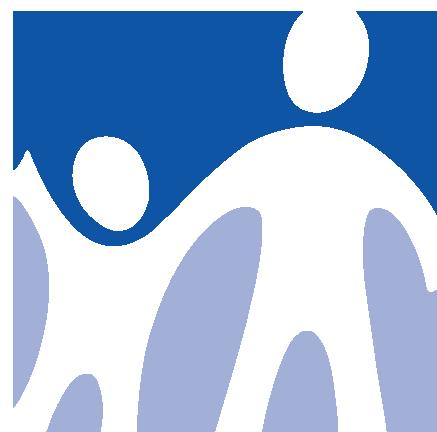
-Babies First NC Administrator

10 programs in Durham, Johnston, Harnett, Martin, New Hanover, Pender, Pitt, Vance, and Wake counties received technical assistance through Babies First NC.
An average of 259 children were served by the project.
54 teachers and 15 directors participated.
Shaping Healthy Lives (SHL) is a follow-up to Shape NC, a project that helped child care programs in NC promote healthy eating and active play among our youngest children ages 0-5 years old. SHL also promotes healthy eating and active play in young children attending child care programs in Durham County. SHL uses three research-based models (Be Active Kids®, Preventing Obesity by Design and Go NAP SACC) to provide an in-depth approach to health and activity focused on childhood obesity prevention. CCSA technical assistance specialists work with participating child care centers and family child care homes to assess their need to increase physical activity, improve the children’s meals, engage families in the process and enhance the materials provided to children to support these goals. SHL’s goal is helping child care programs provide opportunities so children may, regardless of their family’s circumstances, succeed and enter kindergarten healthy and active.
84 children benefited from Shaping Healthy Lives.
3 child care centers and two family child care homes worked with Shaping Healthy Lives.
100% of participating child care centers implemented at least three improvement strategies identified in their improvement plan.
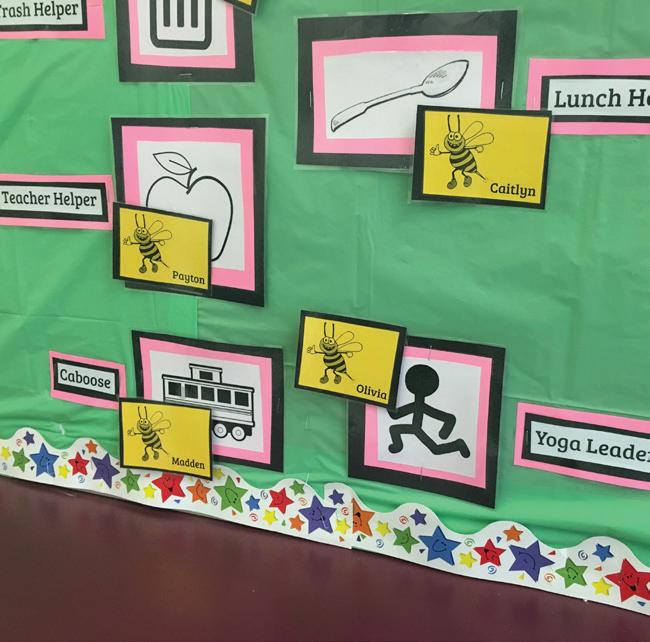
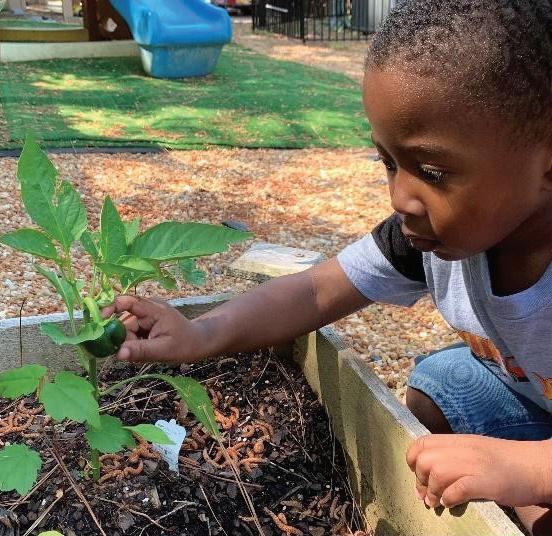
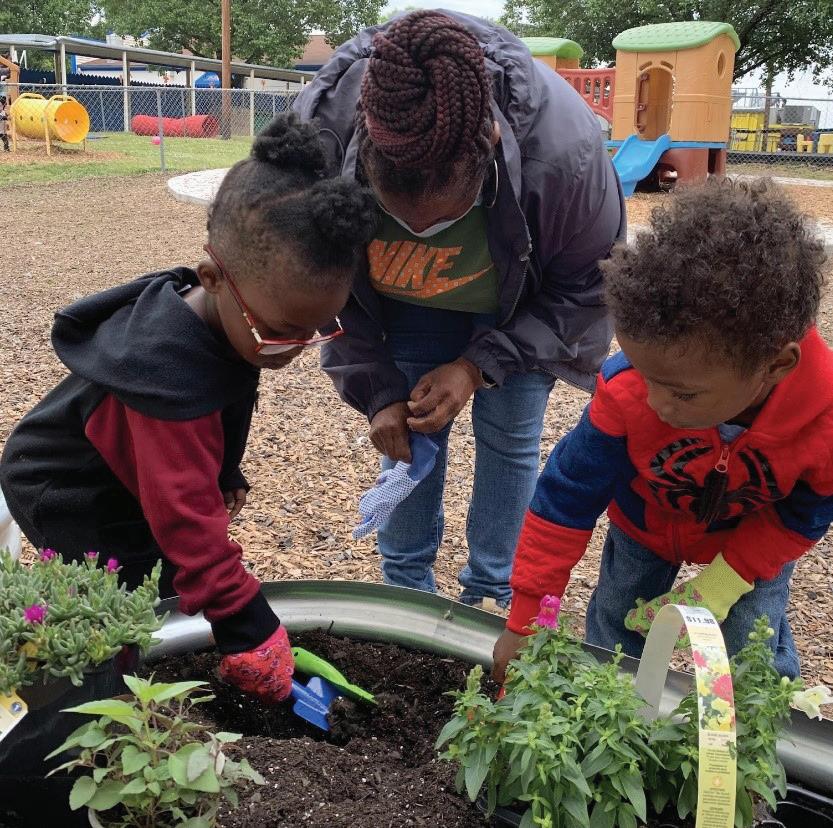
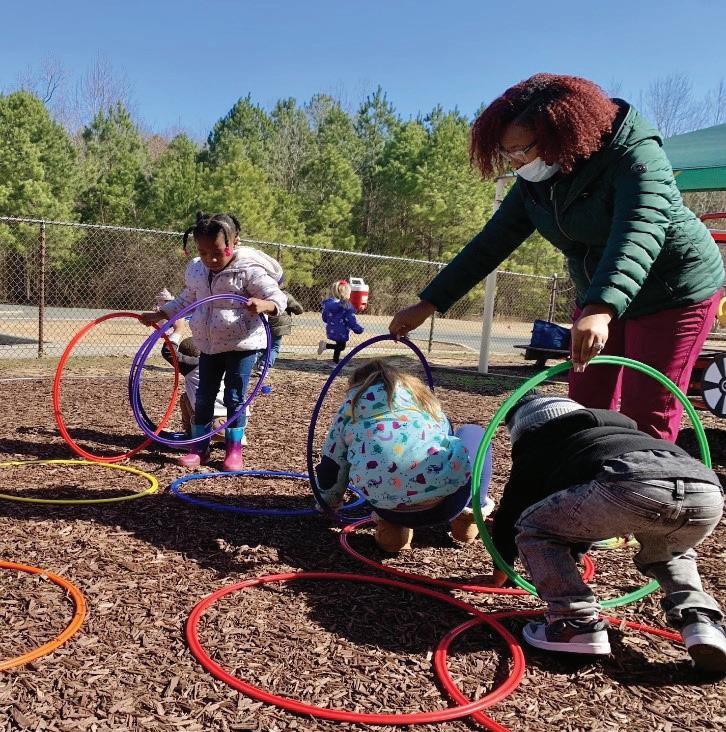
One important aspect of SHL is its focus on families earning low incomes by recruiting licensed early education centers serving children who qualify for child care subsidy and prioritizing child care programs based on the number and percent of children who live in poverty, thus reaching some of the children with the highest needs. By following Shaping Healthy Lives’ best practices, CCSA and participating centers can help reduce obesity in even our youngest children. In addition, SHL’s play-based activities directly affect the physical, emotional and social development of children in the program and teach their parents and teachers how to create environments that promote lifelong health.
100% of participating child care centers demonstrated improvements in two of three modules based on pre and post-NAPSACC assessments.
100% of participating family child care homes implemented at least two improvement strategies identified in their improvement plan.
100% of participating family child care homes demonstrated improvements in two of three modules based on pre and post-NAPSACCC assessments.
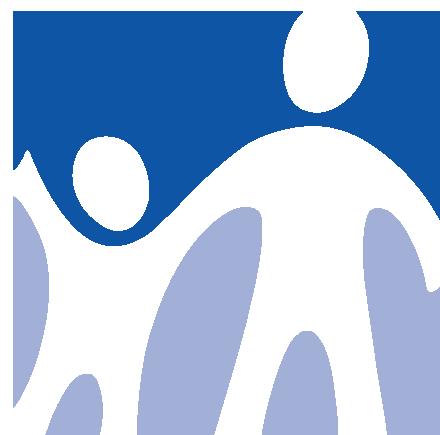

Durham PreK is Durham County’s local investment in high-quality early childhood education for all 4-year-olds in Durham County. With an abundance of evidence that high-quality universal preschool could reduce the disparities in skills among children entering kindergarten, Durham’s policymakers have focused resources on developing and expanding quality preschool programs for 4-year olds. Children from lower-income households are often left behind, furthering inequality and setting the stage for the achievement gap that persists through high school. A critical component of Durham PreK is the diverse settings in which the preschool classrooms are located.
CCSA serves as the management agency for Durham County Government for Durham’s universal preschool initiative, Durham PreK. CCSA works in collaboration with Durham’s Partnership for Children, NC Pre-K, Durham Head Start - Families and Communities Rising, and Durham Public Schools, along with other supporting partner agencies such as Book Harvest and the Durham Children’s Initiative, to enhance quality and expand accessibility of all public preschool seats in Durham County.
“I am so grateful for my family’s experience with Durham PreK; specifically, our experience with the Whitted School and Mr. Mabini. Mr. Mabini and his teaching assistant, Ms. Woods, created a classroom environment that made my child feel loved, while also teaching him critical academic and socio-emotional skills that helped prepare him for kindergarten. My child had prior experiences in a different preschool that made him dislike school and feel like he was a ‘bad’ kid. At Whitted, he was supported and felt connected to his teachers and classmates. He felt like a leader and like a child who could be successful at school. As a result, he loved school and loved learning. I am so thankful for our Durham PreK experience.”
“If we can create a system of high-quality early childhood education for children, regardless of their economic status, race, immigration status, etc. then we have a real possibility of creating a community that is just. We can’t stop at early childhood education, because that’s just the first step. We still have to look at more systemic issues that continue to affect children throughout their lives. But without that, I don’t think that any of the systemic solutions can succeed, because we have to have adults who can step into our community and take advantage of the equitable systems that we were trying to create.” —Leigh Bordley, Durham PreK Governance Committee
There were 20 Durham PreK sites with 34 classrooms for Durham County’s 4-year-olds.
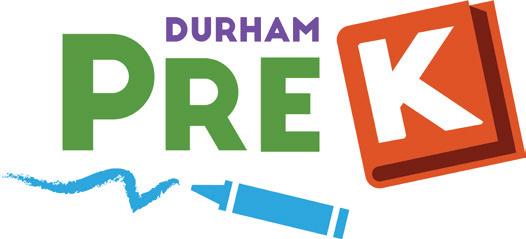

451 children attended Durham PreK classrooms.
76% of Durham PreK staff was Black, 12% was White, 9% was Latinx/ Hispanic and 2% was Asian-American.
Participation in spoonFULL, CCSA’s meal services program, increased from FY21 across Durham, Orange and Wake counties. In FY2021-2022, CCSA provided fresh, scratch-made meals to 23 centers with more than 1,400 children. Meals are delivered daily, with lunch, afternoon snacks and breakfast for the next day. Favorite meals included childhood standards such as mac and cheese, baked chicken and spaghetti and meatballs, as well as less typical foods like quiche.
The Numbers. In FY 2021-2022...
spoonFULL, formerly CCSA’s Meal Services Program, provides high-quality and affordable nutritious meals and snacks daily to children enrolled in participating child care centers in North Carolina’s Durham, Wake and Orange counties, keeping children healthy, helping teachers focus on teaching and saving providers money. In FY2020-2021, CCSA’s Meal Services Program became spoonFULL, Fresh, Unique, Liked, and Local. The new name reflects our commitment to serving quality, locally grown food when possible and providing children with meals that nourish their bodies and minds.
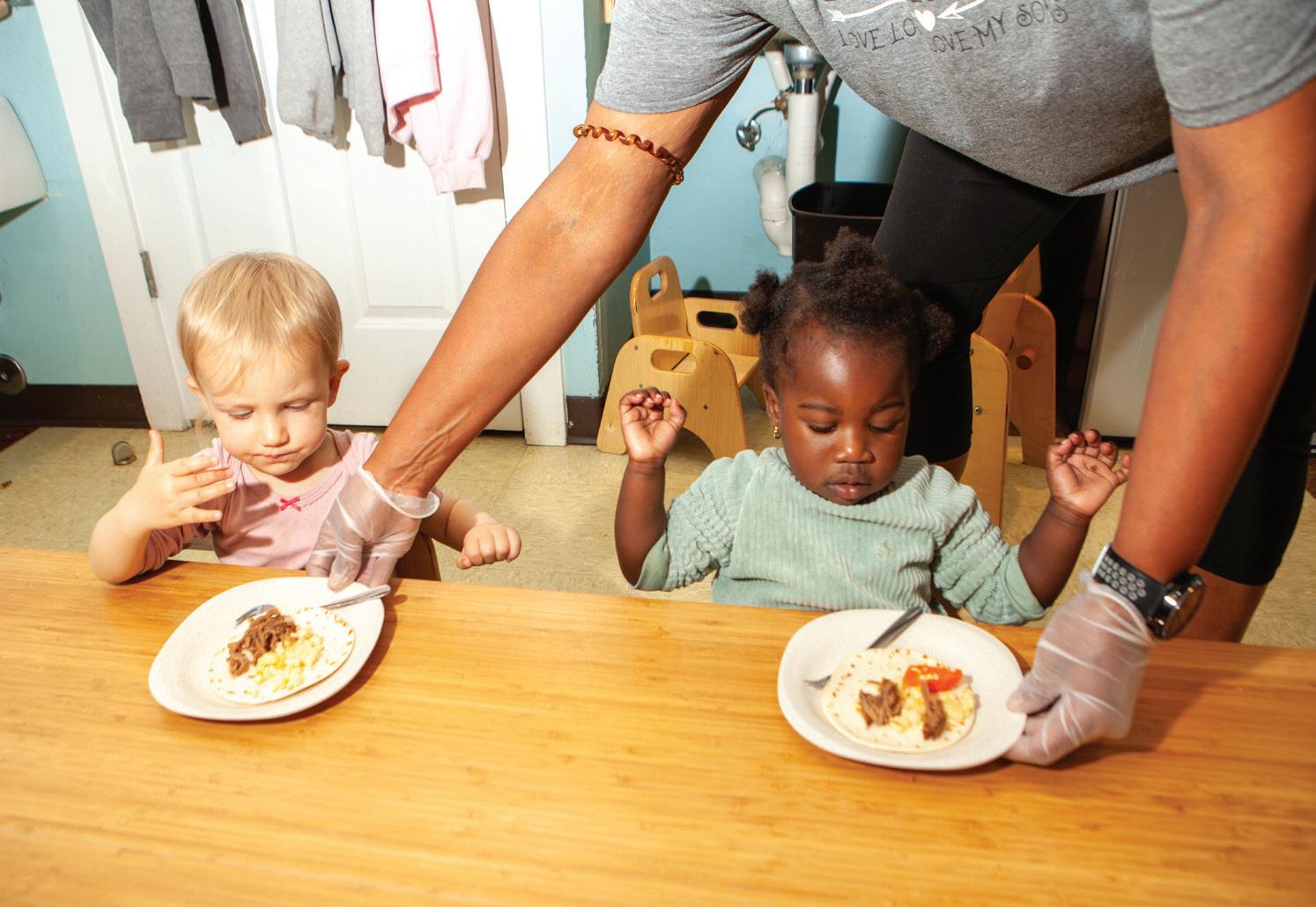
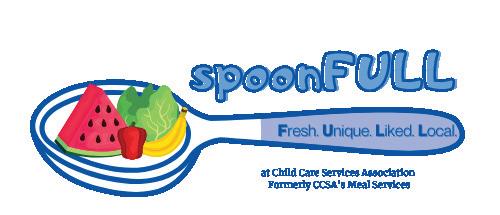
spoonFULL’s team of experienced chefs work hard to provide creative meals that are familiar to young children as well as introduce new foods like baked cod and foods from other cultures like arroz con queso (rice with cheese). Nutrition is part of every early childhood curriculum. As such, we provide a monthly newsletter for parents and offer lunch to teachers as a way to encourage family-style eating and entice children to try new foods.
455,280 meals served.
23 centers participated in spoonFULL.
1,450 children each day received meals and snacks from spoonFULL.
CCSA sponsors the USDA’s Child and Adult Care Food Program (CACFP) for family child care homes in Durham, Granville, Orange, Vance and Wake counties. This program, which targets children in families that qualify for free or reduced lunch, sets nutrition standards for children ages birth-12 years old and subsidizes the cost of food for child care programs. In FY2021-2022, through CACFP, CCSA served 561,038 meals to an average of 1,051 children daily through 68 child care programs.
A Deep Impact on Children and Families: Early Childhood Education is the Workforce Behind our Workforce
Program Expenses $32,001,727 93.49%
General and Administrative $2,169,617 6.34%
Fundraising $59,994 0.18%
FY2022 FY2021
Grants and awards 9,761,517 9,093,502 Scholarships--TEACH 2,977,877 2,916,575
Scholarships--child care 5,787,144 5,676,778 Subcontracts 6,227,095 6,426,429
Total Grants and Assistance 24,753,633 24,113,284
Salaries and Fringe Benefits 7,982,160 7,887,406 Program and Office Supplies 852,708 556,006 Contracted Services 733,392 693,300 Occupancy 141,100 126,067 Travel and Meetings 199,536 103,487 Depreciation and Amortization 237,569 248,669 Postage and Telephone 139,178 149,035 Printing and Publications 29,470 35,091 Repairs and Maintenance 35,311 40,082 Dues and Subscriptions 172,655 152,330
Interest Expense 53,935 55,930 Insurance 42,226 37,289 Other Expenses 47,106 33,362
Total Operating Expenses 10,666,346 10,118,054
Total Expenses 35,419,979 34,231,338


Individuals
Jo H. Abernathy
Anonymous
Marsha Basloe
Ned F. and Ginny Brooks
Richard and Nadine Burton Samantha Camacho
Anna Stotts Carter Scott and Heidi Carter
Carolyn T. Cobb
Manuel Costa and Nancy Park
Amy S. Cubbage
Ana De Hoyos O’Connor
Marguerite DeCarli
J. Lanier Degrella
Charles S. Derrick
Amanda F. Dupree
Shelley and Jo Anne Earp
Catherine Elander
Mary F. Erwin
Stephanie Fanjul
Thomas N. Feinburg and Ellen PeisnerFeinburg Peter Filene
Marjorie Freeman
Barker French
Khari M. Garvin
Daniel J. Gerlach
Lisa M. Goldman
Priscilla A. Guild
Joe Hackney
Susann Haskins
Phillip H. Hershberger and Anne W. Mitchell
Sharon S. Hirsch
Aleksandra Holod
Daniel Hudgins and Ann McKown
Michelle Hughes
Charles Humble
James and Carolyn Hunt
Diane K. Jaskot
F. Reed and Kathleen Johnson
Thomas F. Keller
Jennifer Lacewell
B. Paul Lindsay
William V. Lucas
Allison Miller
Dalphia Murphy
Andrew Short and Andrea D. Vizoso
Felica Olds
Michael J. Palmer
David and Lisa Price
Wendy Price
Christopher L. Ratte
Ana Elisa Sanchez
Stephen M. Schewel
Martin Schweitzer and Josephine R. Bisbee
Frances S. Seawell
Harold G. Sellars
Kimberly W. Shaw
Kitty P. Sherwin
Kara and Karl Shultz
Eric M. Sowers
Ginger Thomas W. Stephens Toler
Asata Virgo
Rick Waechter
Dianne Ward
Mamie Watson
Andrew H. Weathersbee
Chris and Janet Willett
Paul A. Winterhoff
Anonymous Alliance for Early Success
AmazonSmile Foundation
BlueCross BlueShield of North Carolina Foundation
Esperanza de Dowdy Fund of North Carolina Community Foundation NC Community Foundation
Strowd Roses Foundation
Sparling Fund of Triangle Community Foundation
Svetkey-van der horst Fund of Triangle Community Foundation
Tepper Family Fund of Triangle Community Foundation
Truist Charitable Foundation
W. Clement & Jessie V. Stone Foundation
W.K. Kellogg Foundation
Z. Smith Reynolds Foundation
Church of St. Thomas More Council for Professional Recognition Dogwood Health Trust
Durham’s Partnership for Children Families & Communities Rising First Chronicles Community Church First Presbyterian Day School NC Child
National Association for the Education of Young Children
Orange County Partnership for Children NC State Employees Combined Campaign
The North Carolina Partnership for Children
United Way of the Greater Triangle Wake County Smart Start
A Deep Impact on Children and Families: Early Childhood Education is the Workforce Behind our WorkforceDurham County Government
N.C. Department of Health and Human Services
N.C. Division of Child Development and Early Education Town of Carrboro Town of Cary Town of Chapel Hill Colleges and Universities
Duke Office of Durham and Community Affairs
Duke University North Carolina State University University of North Carolina at Chapel Hill
Blackman & Sloop CPAs PA
Blue Cross Blue Shield of North Carolina

Blue Ridge Daycare LLC
Discount School Supply
Environment Control Triangle
F&M Bank
IBM
KinderCare Learning Companies
Lakeshore
My Pro Photographer
Old Peak Finance
PHE Inc.
Randy’s Five Star Academy
This list represents charitable gifts and grants made to Child Care Services Association between July 1, 2021, and June 30, 2022. While we have made every effort to be accurate and thorough, it is possible to accidentally omit or misspell a name. Please contact the Director of Development and Communication at 919-967-3272 x. 1927 with any additions or corrections.
Alamance Partnership for Children
Alexander County Partnership for Children
Alleghany Partnership for Children
Alliance for Children (Union County)
Blue Ridge Partnership for Children
Buncombe Partnership for Children, Inc.
Cabarrus County Partnership for Children
Caldwell County Smart Start
Cleveland County Partnership for Children, Inc.
Columbus County Partnership for Children, Inc.
Craven Smart Start, Inc.
Down East Partnership for Children
Durham’s Partnership for Children
Franklin Granville Vance Smart Start, Inc.
Guilford County Partnership for Children, Inc.
Halifax-Warren Smart Start Partnership for Children, Inc.
Harnett County Partnership for Children, Inc.
Hertford-Northampton Smart Start Partnership for Children, Inc.
Iredell County Partnership for Young Children, Inc.
Lee County Partnership for Children
Martin-Pitt Partnership for Children, Inc.
Montgomery County Partnership for Children
Partners for Children & Families Inc. (Moore County)
Partnership for Children of Johnston County, Inc.
Partnership for Children of Lenoir and Greene Counties
Partnership for Children of Lincoln/Gaston Counties
Partnership for Children of the Foothills Randolph County
Partnership for Children Region A Partnership for Children
Richmond County Partnership for Children
Rockingham County Partnership for Children, Inc.
Smart Start of Brunswick County, Inc.
Smart Start of Davidson County, Inc.
Smart Start of Davie County, Inc.
Smart Start of Forsyth County
Smart Start of Mecklenburg County
Smart Start of Transylvania County
Smart Start Partnership for Children, Inc. (Henderson County)
Smart Start Rowan, Inc.
Stanly County Partnership for Children
Surry County Early Childhood Partnership
The Partnership for Children of Cumberland County
The Partnership for Children of Wayne County, Inc.
Wilkes Community Partnership for Children
Wilson County Partnership for Children
A Deep Impact on Children and Families: Early Childhood Education is the Workforce Behind our WorkforceAlabama Partnership for Children
Arkansas Early Childhood Association
Early Childhood Council Leadership Alliance (Colorado)
National Black Child Development Institute (Washington, D.C.)
Children’s Forum, Inc. (Florida)
Iowa Association for the Education of Young Children
Indiana Association for the Education of Young Children
Maine Association for the Education of Young Children
Michigan Association for the Education of Young Children
Child Care Aware® of Minnesota
Child Care Aware® of Missouri
Nebraska Association for the Education of Young Children
NevAEYC
Child Care Aware® of New Hampshire
Child Care Services Association (North Carolina)

Ohio Child Care Resource and Referral Association
Pennsylvania Child Care Association
Rhode Island Association for the Education of Young Children
South Carolina Endeavors
Signal Centers (Tennessee)
Texas Association for the Education of Young Children
Utah Association for the Education of Young Children
Vermont Association for the Education of Young Children
Wisconsin Early Childhood Association
Sharon Hirsch, Chair
Prevent Child Abuse NC
Kimberly Shaw, Secretary A Safe Place Childcare
Richard Burton, Treasurer Community Volunteer
Jo Abernathy Blue Cross Blue Shield NC
Jennifer Lacewell White Rock Child Development Center
Michael Palmer Community Volunteer Harold Sellars Community Volunteer Chris Willett Beemer Hadler & Willett, PA
Dan Hudgins, Vice Chair Community Volunteer
Aleksandra Holod, Asst. Secretary American Institute for Research
Christopher L. Ratté, Asst. Treasurer F&M Bank
Khari Garvin United Way of Greater Greensboro
Ana De Hoyos O’Connor San Antonio College
Ana Elisa Sanchez Casa Club Spanish Immersion Preschool Mamie Watson First Presbyterian Day School
A Deep Impact on Children and Families: Early Childhood Education is the Workforce Behind our Workforce




